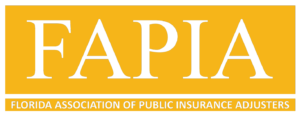- Public adjusters help maximize insurance claims by assessing damage accurately, filing claims promptly, and checking fair compensation after natural disasters in Florida.
- They assist in challenging denied or underpaid claims, reviewing the insurer’s assessment, gathering additional evidence, and negotiating for better outcomes.
- Public adjusters navigate complex policy terms, interpreting clauses and exclusions to confirm that claims align with coverage and prevent insurers from underpaying.
Florida’s frequent hurricanes, storms, and other natural disasters often leave property owners grappling with the damage they left in their wake—and we’re not just talking about property damage. Insurance claims designed to help cover these damages can be overwhelming and difficult to navigate—this is where a public adjuster comes in.
The Role of Public Adjusters in Florida
Public adjusters act as your advocate during the claims process. Unlike insurance company adjusters, who serve the insurer, public adjusters work on your behalf to document and account for all damages. They provide an expert assessment of your property damage so that no aspect of your loss goes unnoticed.
In Florida, where storm and hurricane damage is common, a public adjuster is an asset you can’t afford to not have. They know state-specific insurance laws and understand how to maximize claims under Florida’s unique insurance environment. They also specialize in various types of damage, from floods to roof leaks, helping you get the compensation you deserve.
Here’s how public adjusters in Florida can help you secure the best outcome for your claim, from water damage to hurricane-related destruction.
The Importance of Timing in Filing Claims
One of the most overlooked factors in maximizing your insurance claim is filing it promptly after a natural disaster. Since hurricanes and other tropical storms are common in Florida, insurance companies often have to deal with a surge in claims from other distressed homeowners post-storm. Filing quickly not only helps your claim process sooner but also helps you avoid potential delays caused by overwhelmed insurers. Additionally, waiting too long to file a claim may give the insurer grounds to argue that some damages are unrelated to the disaster or have worsened due to a lack of immediate action.
Public adjusters are invaluable in this situation because they can quickly assess the damage and start the claim process. They know the documentation you need to start and present your claim effectively, minimizing the chance of an insurance company undervaluing your claim. By acting swiftly, a public adjuster confirms that all the damages caused by the disaster are addressed, and you don’t lose out on compensation due to procedural delays or missed deadlines.
This emphasis on timing becomes even more important in Florida, where certain insurance policies may have specific deadlines for reporting damage. Public adjusters are familiar with these deadlines and can guide you through the necessary steps to meet all the requirements, ensuring you get the maximum payout for your claim.
Types of Damage Adjusters Can Help You With
Florida public adjusters are equipped to handle various types of damage caused by natural disasters. Below are some of the most common types of damage they can help you address:
Water Damage
Florida’s heavy rains and hurricanes often result in water damage to homes. Whether from flooding, roof leaks, or broken pipes, water can cause widespread destruction that is often more severe than it initially appears. Dealing with a water damage claim requires thorough documentation, and insurance companies may question the extent of the damage, especially if mold or structural problems arise later on.
A public adjuster will meticulously inspect the property for hidden damage caused by water. The damage can include moisture seeping into walls and floors, which may not be visible but can lead to long-term issues. By capturing this often-overlooked damage and presenting clear documentation to the insurer, they check that your water damage claim covers the full scope of repairs.
Wind and Storm Damage
Wind damage from storms or hurricanes can be severe, impacting roofs, windows, and even the structure of your home. However, filing a successful wind damage claim is not always straightforward. Insurance companies may challenge claims by downplaying the damage or attributing it to poor maintenance rather than the storm itself.
Claim adjusters counter this by carefully inspecting the entire property for both visible and hidden damage. For instance, roof tiles may appear intact, but underlying damage from wind pressure can cause problems later. They work with experts to present the documentation needed to support your claim so that your settlement covers all the necessary repairs and avoids future complications.
Roof Leaks
Roof leaks, especially after storms, can cause significant damage. However, many insurance claims for roof leaks are either underpaid or denied due to arguments that the damage was pre-existing or minimal.
A public adjuster can not only evaluate visible damage, such as cracked shingles or leaks, but also look for potential hidden issues, such as water accumulation in the roof structure, which could lead to mold or further degradation. By providing detailed documentation, they help property owners receive adequate compensation to fix the leak and prevent further damage.
Fire Damage
While hurricanes and storms dominate Florida’s natural disasters, fire damage is another serious risk. The aftermath of a fire can be overwhelming, with insurance claims often requiring detailed records of lost property and repair needs.
Claim adjusters specialize in handling fire damage claims, checking that every detail is accounted for in the settlement. Beyond structural repairs, they help homeowners assess the value of damaged personal belongings, such as furniture, electronics, and other items, which the insurance company may undercompensate. They also navigate disputes over policy coverage so that no aspect of the claim is overlooked.
Boat Damage
Florida’s coastal lifestyle means that boat damage claims are common, especially after hurricanes. Boats are often victims of wind, water, and impact damage, and these claims can be complex due to the specialized nature of marine insurance.
A public adjuster with experience in boat damage claims is invaluable. They understand the nuances of marine insurance and know how to document boat damage accurately, from hull issues to engine damage. They also check that personal belongings on the boat, like navigation equipment and gear, are included in the claim. This thorough approach maximizes the settlement, allowing boat owners to restore their vessels quickly and comprehensively.
The Public Adjuster’s Process

The involvement of a public adjuster doesn’t begin when the insurance company sends a check. Instead, their work starts right after the damage occurs. Here’s how the typical process unfolds:
- Initial Inspection: After the disaster, the public adjuster conducts a comprehensive inspection of the property to assess the damage.
- Documentation: Detailed reports, including photographs and expert opinions, are created to support the claim.
- Claim Filing: The public adjuster files the claim with the insurance company so that all required information is included and presented in a clear, professional manner.
- Negotiation: Public adjusters handle negotiations with the insurance company, advocating for the full value of your claim. They manage disputes and use their knowledge of Florida’s insurance policies to argue for a fair settlement.
- Final Settlement: Once an agreement is reached, the public adjuster checks that the property owner receives the agreed-upon amount, and if necessary, they assist in resolving any final disputes.
Handling Denied or Underpaid Claims
Even with substantial damage, some property owners are frustrated when their insurance company denies or underpays their claims. This scenario is all too common in Florida, where natural disasters can cause insurers to conduct rushed or incomplete assessments. When an insurance company denies or underestimates a claim, property owners may feel helpless in navigating the appeal process or finding ways to reopen the case.
If your claim is denied or underpaid, a public adjuster can review the insurance company’s decision, assess whether the claim was properly evaluated, and gather additional evidence that may have been overlooked. They are experienced in challenging unfair claim outcomes, whether through negotiation or by presenting new documentation that reinforces the extent of your losses.
Their expertise is particularly valuable in cases of underpaid claims, where the insurer may not have accounted for hidden or long-term damage. By thoroughly reassessing your property and comparing the insurance company’s payout against actual repair costs, they can confirm whether you have received fair compensation for your loss. If necessary, they can help you navigate the process of disputing the claim or even reopening a case that was previously closed.
Navigating Complex Policy Terms and Conditions
Understanding the fine print in an insurance policy is often one of the most challenging aspects for property owners, especially after a natural disaster. Insurance contracts are full of technical language, exclusions, and clauses that can significantly affect how much compensation you receive. In Florida, where policies often come with specific clauses for hurricane or flood damage, missing a key detail can lead to lower payouts or even claim denials.
Public adjusters are trained to interpret these complex policy terms. They carefully review your insurance coverage to identify any hidden clauses or exclusions that may limit your payout. For instance, certain policies might exclude water damage if it originates from external flooding rather than internal leaks. Claim adjusters help navigate these distinctions so that the claim aligns with the actual coverage.
By fully understanding your policy, public adjusters can negotiate with the insurance company on your behalf, preventing them from using ambiguous terms to reduce your compensation. Their expertise helps you be aware of what you are entitled to and can secure a payout that matches your damages without the stress of having to untangle complicated legal jargon.
Why Florida Property Owners Need a Public Adjuster
In Florida, where natural disasters are common, public adjusters are invaluable allies for property owners. Insurance companies often aim to minimize payouts, and navigating the claims process can be confusing and time-consuming. Public adjusters offer the expertise needed to check that property owners receive the compensation they deserve, allowing them to focus on rebuilding their lives and homes.
Beyond securing a higher payout, public adjusters bring peace of mind. They understand the complexities of Florida’s insurance landscape and are skilled at managing all types of damage claims, from hurricane-related water damage to boat repairs. With a public adjuster on your side, you can be confident that your insurance claim is in capable hands.
If you’re facing property damage from a natural disaster in Florida, don’t navigate the claims process alone. Our experienced public adjusters at On Target Claims specialize in maximizing payouts for homeowners affected by storms, hurricanes, and other disasters. We will work on your behalf to help you receive the compensation you deserve. Contact us today for a consultation and let us handle your claim from start to finish.


